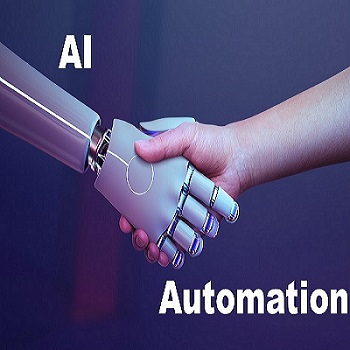
Introduction:
In an era defined by rapid technological advancements, the future of careers is poised for transformative change. As artificial intelligence (AI) and automation continue to reshape industries, professionals must adapt and embrace these technologies to thrive in the evolving job landscape.
1. Understanding AI’s Role:
AI is no longer a distant concept from science fiction; it’s a reality that’s already impacting various sectors. Professionals should understand how AI works, its capabilities, and its limitations. Rather than fearing job displacement, view AI as a tool to enhance productivity and decision-making.
2. Lifelong Learning in a Digital Age:
The integration of AI and automation requires a commitment to continuous learning. Professionals must upskill to complement the tasks AI can’t perform, such as creativity, emotional intelligence, and complex problem-solving. Online courses, workshops, and certification programs offer accessible avenues for skill enhancement.
3. Reshaping Job Roles:
AI and automation are shifting job roles. Repetitive and routine tasks are being automated, freeing up human workers for more strategic and creative responsibilities. Professionals should anticipate these changes and proactively develop skills aligned with emerging job requirements.
4. Collaboration Between Humans and Machines:
The future workplace will be a collaboration between humans and machines. Professionals should hone their ability to work alongside AI systems, leveraging their strengths for better outcomes. Effective human-machine collaboration can lead to unprecedented innovation and efficiency.
5. AI-Driven Personalization:
AI is revolutionizing customer experiences through personalized recommendations and interactions. Professionals should embrace AI tools that analyze data to understand customer preferences, enabling them to provide tailored solutions and services.
6. Entrepreneurial Opportunities:
AI and automation create entrepreneurial avenues. Professionals can develop AI-driven products and services, tapping into new markets and industries. Entrepreneurs who understand AI’s potential can pioneer groundbreaking solutions.
7. Ethical Considerations:
As AI becomes deeply integrated into daily life, ethical considerations arise. Professionals should engage in discussions about AI ethics, ensuring that AI technologies are developed and used responsibly, and addressing potential biases and privacy concerns.
8. Remote and Flexible Work:
AI-powered communication tools facilitate remote collaboration, enabling professionals to work across geographical boundaries. The ability to adapt to remote work practices and utilize AI tools for seamless communication will be crucial.
9. Healthcare and AI:
The healthcare sector is experiencing significant AI integration, from diagnostics to personalized treatment plans. Professionals in healthcare should embrace AI technologies to enhance patient care and streamline processes.
10. Adaptability as a Skill:
In a rapidly evolving landscape, adaptability is a paramount skill. Professionals who can quickly learn and adjust to new technologies and methodologies will remain competitive and relevant in the job market.
